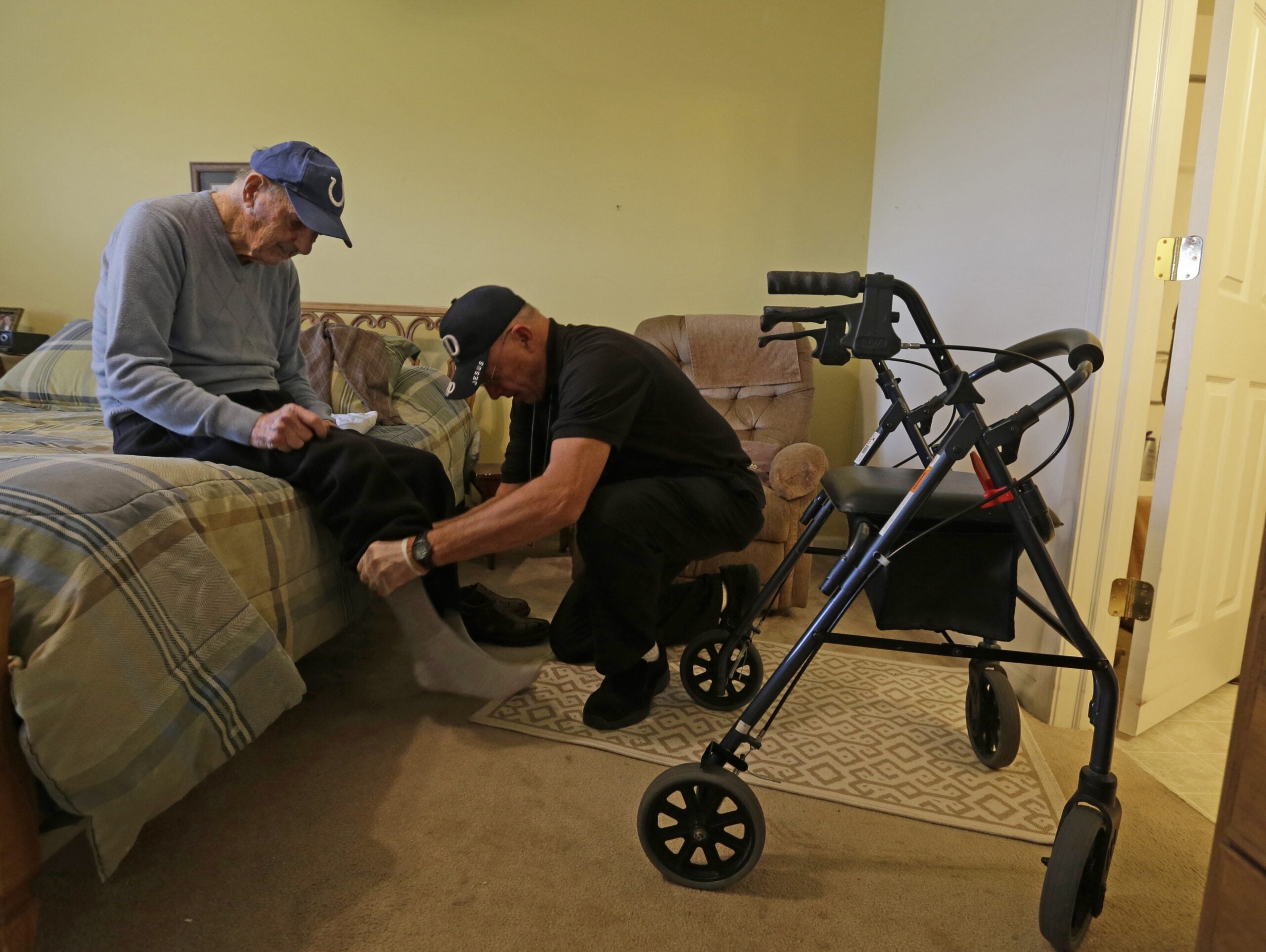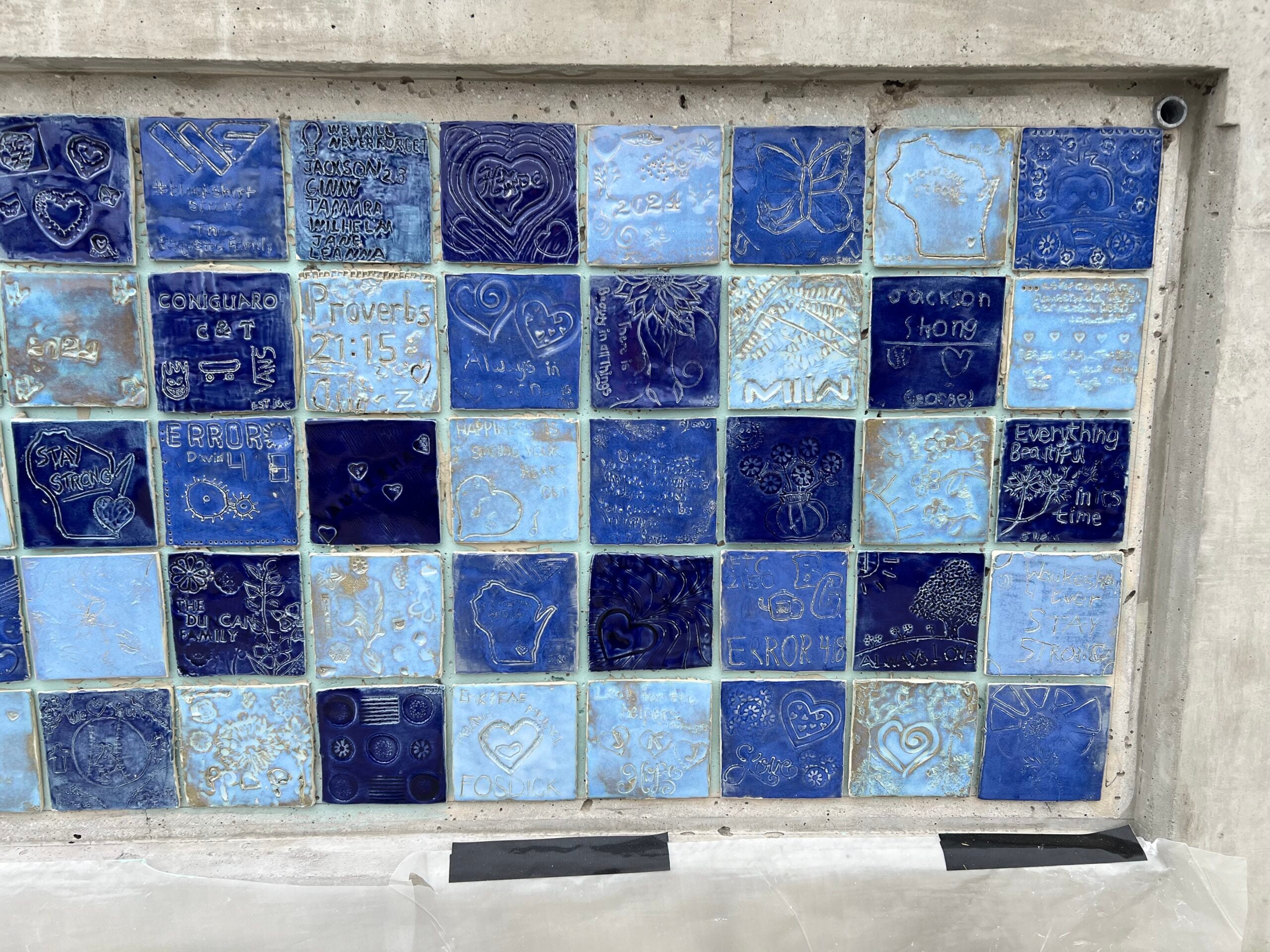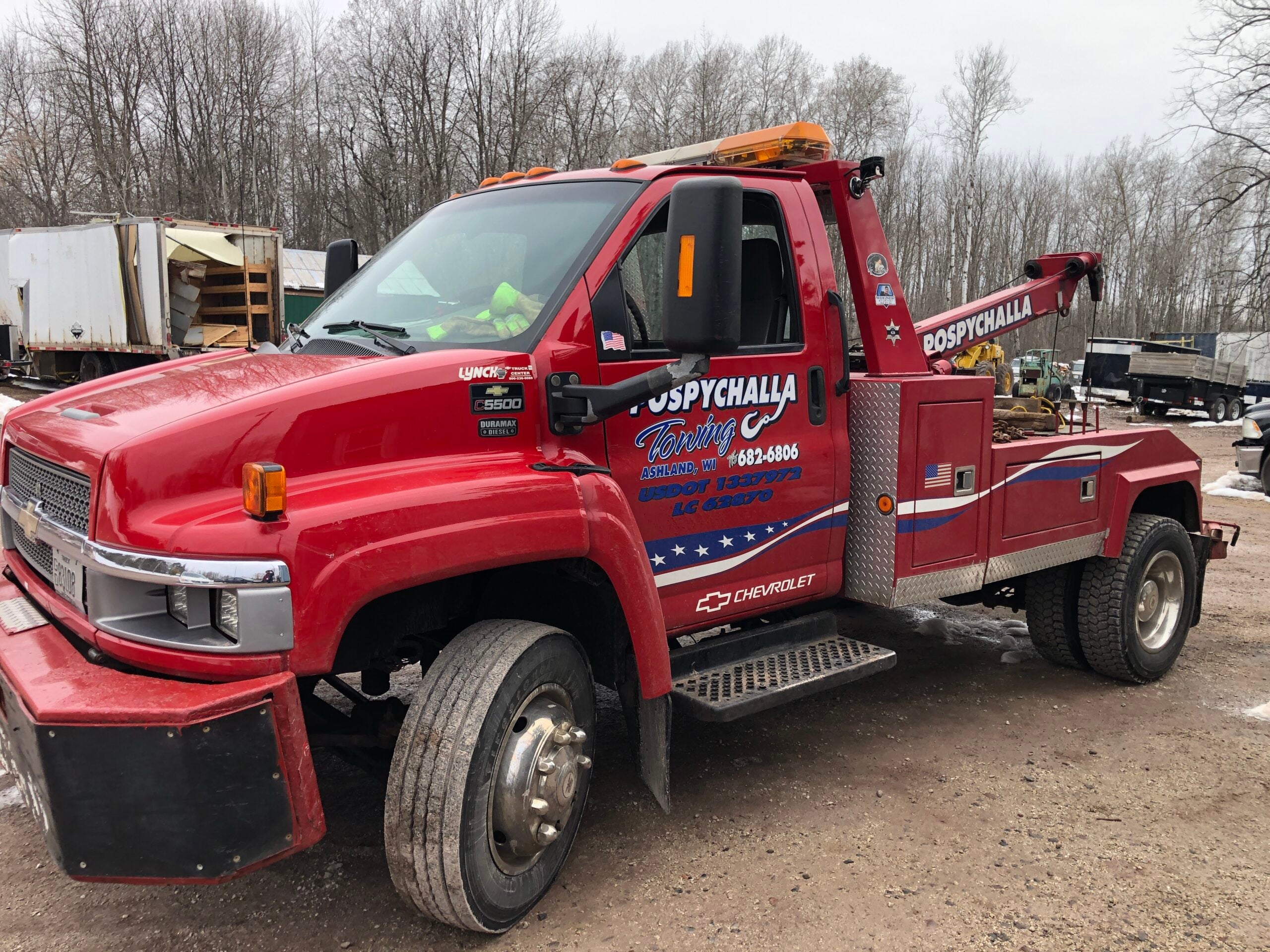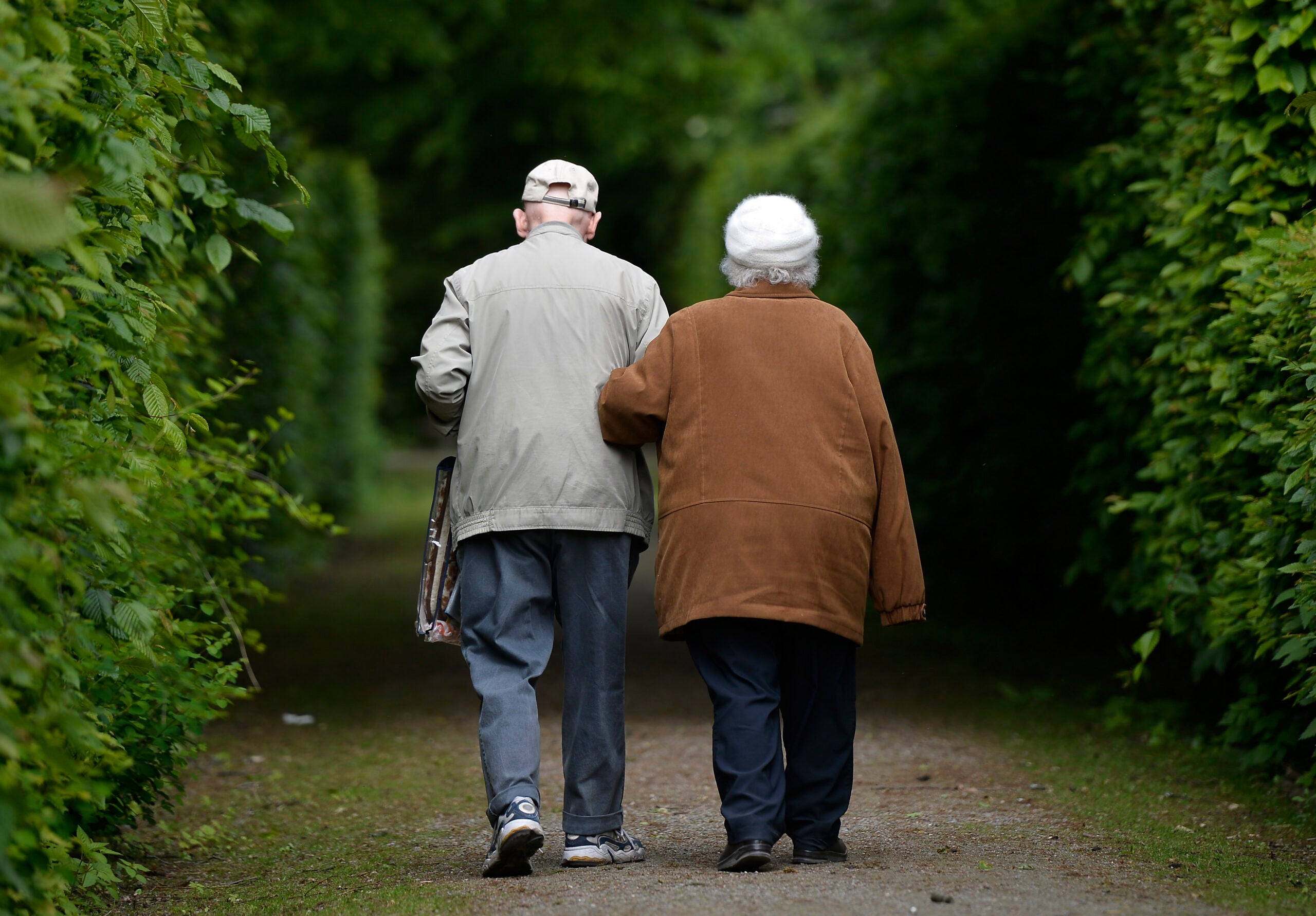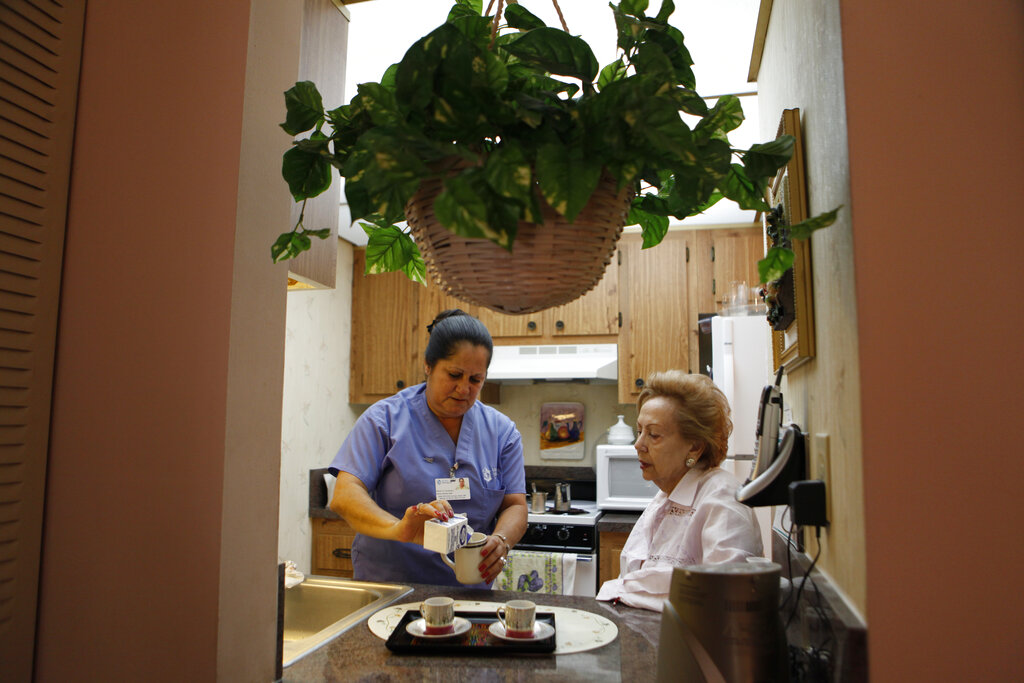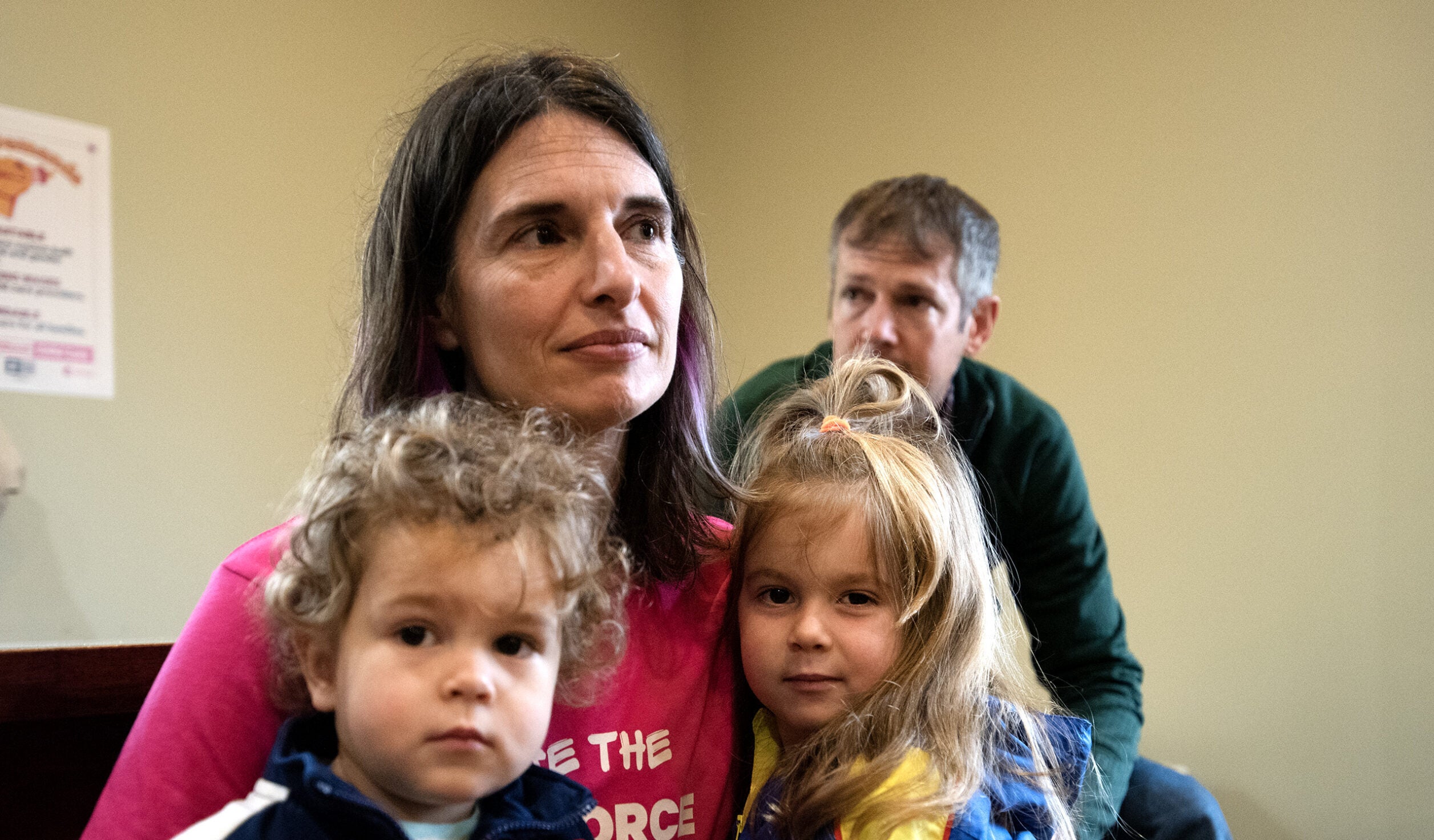Featured in this Show
-
2020 Rose Parade Caregivers
Judy Crotsenberg was able to check an item off her bucket list when she watched the 2019 Rose Parade in Pasadena, California in person.
Now, a year later, she may top that as she and her husband Jerry Crotsenberg have been invited to ride on a float in the 2020 parade.
The SCAN Foundation, a California-based non-profit that works to help people live independently as they get older, is sponsoring a float in the iconic New Year’s parade called “Hope’s Heroes.” It pays tribute to generations of family caregivers across the United States.
“Caregiving in our case and what The SCAN Foundation promotes is keeping people in their home as long as possible,” Judy Crotsenberg said. “The float is a castle with knights and horses. It’s representing keeping people in their home as long as possible — in their castle.”
The Crotsenberg’s live on their family farm in rural Hillsboro, Wisconsin, one of four generations living near each other. Their closest neighbor is a half mile away.
“My dad has passed and now mom is 91-years-old. Although she’s in fairly good health, mobility is becoming increasingly more an issue. For us in our situation, caregiving is not so much illness as it is the day-to-day help, checking on her, doing yard work and grocery shopping,” Judy Crotsenberg said.
Still, they are 20-miles from the nearest population center. Jerry Crotsenberg said the isolation of living in a rural area can at times make providing care a challenge.
“In an urban area, you can probably call somebody, ‘Can you deliver this meal to somebody, or can we have medications brought in?’ It’s a little bit easier. In the rural setting, we have to be more self-sufficient. We have to be able to gear our time to help somebody do something or to get something done,” he said.
Judy Crotsenberg says rural parts of Wisconsin are aging, which can make caregiving a challenge, but it’s worth it.
“Caregiving is about giving love. You give it and you get it in return. It’s my mom, why wouldn’t I do this? She’s a rock for us,” she said. “If it wasn’t my mom, it could be our neighbor. I know in my own life, when we were busy and working and raising a family, it’s really hard to take the five or 10 minutes to give somebody a phone call before you run to town.”
Jerry Crotsenberg said as a caregiver he’s found the benefit of helping others.
“It’s a feeling of being able to do good and being able to do something for another person. When I’m able to help somebody, I’m helping me too,” he said. “I see mom being more comfortable in her home. She has told us so many times, ‘If I didn’t have you guys here, I wouldn’t be able to stay in my own home.’”
Judy Crotsenberg said she hopes the Rose Parade appearance will send a message to others.
“We’re all going to be there. At some point in our lives all of us are going to need caregiving. I think that‘s part of what The SCAN Foundation hopes to accomplish is to get everybody talking about, ‘When I get there, what will happen?’” she said.
While the Crotsenberg’s are in California for the Rose Parade, their daughter and grandsons will be providing care for their mom.
-
Statewide Caregiver Task Force
Members of a statewide task force with a goal of improving caregiving in Wisconsin say some themes are emerging from the meetings they’ve had so far.
Wisconsin Gov. Tony Evers established the Task Force on Caregiving soon after he was sworn in.
“The way that caregiving really looks in Wisconsin right now is there’s about 578,000 family caregivers that are providing more than 538 million hours of unpaid care. In Wisconsin more than 80 percent of care is actually provided by family members,” said Lisa Pugh, one of the co-chairs of the task force.
Pugh said they are trying to find ways to relieve the stress that can come along with being an unpaid caregiver.
There are also challenges with family care workers, who are paid to provide care.
“We have a pretty significant shortage of those folks across the state. When we survey folks who need care including the elderly and disabled about 80 percent say they can’t find the help that they need,” Pugh said.
The challenge with paid family care workers is paying them wages and benefits that will support a family.
The task force has been meeting since September in Milwaukee, Madison and Green Bay. It will hold more meetings in the new year in the places that are yet to be determined.
The group is planning to issue a report and make suggestions that could be implemented in the 2021-22 state budget by next November.
Episode Credits
- Hope Kirwan Host
- John Davis Producer
- Judy Crotsenberg Guest
- Jerry Crotsenberg Guest
- Jane Bushnell Guest
- Lisa Pugh Guest
Wisconsin Public Radio, © Copyright 2024, Board of Regents of the University of Wisconsin System and Wisconsin Educational Communications Board.

